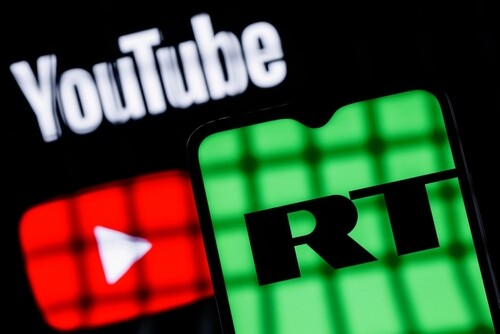Abstract: “Our remedies oft in ourselves do lie, which we ascribe to heaven.” Shakespeare’s timeless words echo throughout history and find validity in contemporary struggles. Modern warfare is, waged in the human domain more than ever, with the human mind becoming the battlefield in cognitive warfare. The aim is to change not only what people think – but how they think and act. Waged successfully, cognitive warfare shapes and influences individual and group beliefs and behaviours to favour one’s objectives. Whereas information warfare seeks to control pure information in all its forms, cognitive warfare seeks to control how individuals and populations react to the information presented. Therefore, achieving and preserving cognitive superiority is key. However, this prized end does not justify using all given means.
Problem statement: How to understand the correlation between cognitive warfare and limitations imposed by Western values?
So what?: State actors can achieve cognitive superiority, either inductively through regulations and laws or through educational empowerment. Whereas restrictions might serve as a temporary solution to mitigate immediate risks, only education provides democracies with a sustainable solution. Any total defence approach has to be built on understanding, common values and the educated willingness to fight for the respective identity.

A “Great Patriotic War”?
February 24, 2022: The Russian Airborne Forces (Vozdushno-Desantnye Voyska Rossii; VDV) seized the Ukrainian airfield in Hostomel. News of this lightning-swift airborne operation travelled around the world, with reports carrying undertones of Ukraine’s impending collapse. Yet the VDV, despite capturing this vital airport, withdrew without achieving any lasting battlefield success.[1] Mirroring Napoleon’s Old Guard, the VDV was reputedly an elite force, renowned for its consistent success in challenging tasks. In reality, however, the VDV, like the Old Guard, was rarely deployed in demanding missions against an enemy willing to fight. In both cases, the narrative shaped perception. Yet at Waterloo in 1815 and Hostomel in 2022, reality crushed rhetoric.
The VDV was reputedly an elite force, renowned for its consistent success in challenging tasks.
The Russian Army’s thrust towards Kyiv proved futile. A 64km logistics convoy was transformed from a symbol of imperial might into a soft target for dispersed Ukrainian land and special forces – something all too apparent by March 2, just a week into the invasion.[2] To gloss over the fact that Russia had fielded a Potemkin military in Ukraine, Russian President Vladimir Putin would eventually, during the 2022 Victory Day parades in Moscow, draw parallels between the Great Patriotic War (Russia’s euphemism for the Second World War) and the campaign in Ukraine.[3] What was expected to be a swift, low-risk political decapitation of Ukraine was suddenly transformed verbally into an epic comparable to the Soviet Union’s existential struggle to repel and ultimately defeat invading German forces more than 80 years earlier.
However, we must ask ourselves why Vladimir Putin compared this historical existential threat against all Russians – insinuating the need to unleash the nation’s entire might – with what the Russian state is calling a “Special Military Operation” (SMO) rather than a war.[4] Mere propaganda, balancing the need to mobilise the nation while acknowledging the Russian population’s rejection of the term “war”?[5] Or playing with emotions on all sides?
On February 25, 2022, US Secretary of State Antony Blinken offered to extract the Ukrainian government from the country. Ukrainian President Volodymyr Zelenskyy supposedly – and in an archetypal American manner – responded, “I don’t need a ride; I need ammunition.”[6] In the months that followed, and while visiting nations that supported Ukraine, such as Germany and the United Kingdom, references were made to Germany’s historical obligation to stand alongside those defending themselves against invading, fascist powers, as well as the UK’s (self-proclaimed) isolation and endurance during the Battle of Britain 1940/1941.[7], [8] Mere propaganda and emotional manipulation once again?
The phenomenon is not new, however. Throughout history, states and non-state actors have shaped the perceptions and understanding of their respective target groups. Just as Cato urged the destruction of a Carthage that had already been crippled 50 years prior,[9] Vladimir Putin is trying to spin his failed venture in Ukraine as an existential struggle for Russia. While rejecting the fact that his campaign is a full-fledged war, Putin has euphemistically embraced the term SMO, which he sees as imposed on him by an ever-expanding, imperialistic West. Much like Ernst Moritz Arndt’s Der Gott der Eisen wachsen ließ,[10] written in 1812 to mobilise anti-Napoleonic sentiments in the German states, President Zelenskyy’s communications morally obligate target audiences to support his nation’s cause.
Much like Ernst Moritz Arndt’s Der Gott der Eisen wachsen ließ, written in 1812 to mobilise anti-Napoleonic sentiments in the German states, President Zelenskyy’s communications morally obligate target audiences to support his nation’s cause.
At this point, a distinction must be made between disinformation, misinformation, information warfare, and cognitive warfare. Disinformation and misinformation refer to the dissemination of false or misleading content. Whereas the former is carried out deliberately to gain an advantage over one’s adversaries, the latter happens unintentionally.[11] Both disinformation and misinformation are, among other things, means of information warfare. This is a war fought explicitly with and for information.[12] Cognitive warfare uses information and technology, among other things, to shape and exploit the way information is understood and processed. It is purposefully concerned with exploiting the way in which people comprehend their world in order to achieve cognitive superiority.
In cognitive warfare, belligerents compete for cognitive superiority by leveraging cognitive biases. Whether they are exacerbated, confirmed, rejected or limited by emotions, memories and culture, cognitive biases shape how we understand information. As we live in the information age, the human mind has become more of a battlefield than ever before – and in contemporary war, it might just be the key terrain.
Why People’s Sentiments Matter
War is a social phenomenon. The processes of democratisation and social inclusion have transformed Western states into democratic and sovereign entities, with people playing a crucial role in this phenomenon as both effectors and as target audiences. Wars are waged in, around, for, and by societies, involving members of the armed forces, democratic campaign enablers, and sustainers or influencers in the information realm.[13]
Clausewitz’s classic definition of war as an act of compelling the other to submit to one’s will remains valid. Contrary to Clausewitz’s times, geopolitical actors have a broader range of effectors at hand to achieve their goals in addition to military might. These can be seen in the DIME concept (Diplomacy, Information, Military and Economy). DIME is a commonly accepted minimum set of Instruments of Power (IoP). According to Hybrid CoE in Helsinki, these IoPs target thirteen areas in the democratic ecosystem.[14]
In Western democracies, the democratic ecosystem is built around the needs of the respective society and increases social resilience.[15] To understand the role of society in resilience and resistance, and the armed forces as an integral part thereof,[16] war theory distinguishes between wars with limited and unlimited objectives (versus wars with limited and total means). Whereas nations, thus far, do not fight with unlimited (nuclear) means, they do so for limited or unlimited objectives. Thus, fighting can be aimed at gaining a political bargaining chip to control a region of particular interest, or to force an opposing government to retreat.[17] Actors repeatedly deploy all their available or required IoP below the nuclear threshold in what is known today as hybrid warfare. Conventional, unconventional, sub-conventional, irregular, and even criminal forces and techniques are coordinated and synchronised across all available domains. They are embedded in and supported by diplomatic and economic efforts. Deception and the infinite power of information are fundamental to this concept.[18]
In Western democracies, the democratic ecosystem is built around the needs of the respective society and increases social resilience.
In this context, the information domain is paramount when it comes to achieving objectives and influencing both intended and unintended effects. Narrative dominance is essential, encompassing the ability to inform, raise reasonable doubts or create plausible deniability. Western democracies ideally strive to perfect their information policies in terms of reliability, accuracy and sourcing. Antagonists, in contrast, seek to achieve superiority by focusing on the speed of information distribution.[19] Both parties have to acknowledge the factual nature of both information and its interpretation. In competing for a target audience’s support, actors must balance the quality, quantity, velocity and continuity of information campaigns. Playing by the rules is disadvantageous in this competition since Western values and laws ideally exclude proactive disinformation campaigns.
However, this is just one side of the coin. The question is not solely about who introduces information first, but also about attribution and steering societal understanding to gain public support. The competition for cognitive superiority is vital when in campaign mode.
Superiority in Cognitive Warfare
In cognitive warfare, the human mind is the battlefield. Cognitive warfare aims to change not only what people think but how they think and act. Waged successfully, it shapes and influences individual and group beliefs and behaviours to favour an aggressor’s objectives.[20] Whereas information warfare seeks to control pure information in all of its forms, cognitive warfare aims to control how individuals and populations react to the presented information.[21]
Another challenge stems from the fact that using cognitive warfare to achieve cognitive superiority requires an understanding of a vast theoretical and academic field; mastery is therefore complicated. Cognitive warfare calls for competence in the fields of communication studies, anthropology, social science, history and cultural aspects, among others, which may prove to be as crucial as so-called emerging and disruptive technologies. The latter range from Big Data to autonomisation and the Internet of Things.[22] Never before have emerging and disruptive technologies exerted such an influence on the way humans understand and process information. In the information age, automatisation, autonomisation, as well as digitalisation, warfighting, and its preparation rely heavily on cyberspace and the information space. Whereas the former is a human-made space, the latter is an overarching space that is constantly being influenced, whether intentionally or unintentionally.
Cognitive warfare calls for competence in the fields of communication studies, anthropology, social science, history and cultural aspects, among others, which may prove to be as crucial as so-called emerging and disruptive technologies.
Cyberspace has essentially facilitated the creation of the vitreous human and – potentially – a transparent society. Digitalisation and the everyday use of cyberspace have turned this artificial domain into a place of real consequence, a diplomatic tool, an economic factor, a military effector, and a social space, satisfying the human need for social connectivity, among other things. Cyberspace has contributed to the democratisation of information, while allowing malign actors to influence target audiences, set and dominate narratives, and exploit information.
Indeed, all these means, including the internet, artificial intelligence, machine learning, and troll factories spreading disinformation and exploiting misinformation, are used to create ambiguity and sow doubt in order to erode societal resilience. Facts are deliberately spun to provide an advantage, question an adversary’s legitimacy, and diminish public support for enemies.[23] There is often no need for the Russian government to spread lies (although it regularly does); it is enough to exacerbate eternal fears (the use of nuclear weapons), make false equivalences (Ukraine, Iraq, Afghanistan, Serbia), or reframe the past (Molotov-Ribbentrop Pact). These endeavours, coordinated and synchronised, are supported by trend analyses in social media and widely spread in cyberspace, fuelling the ideas of nihilistic, opportunistic sceptics.
Technology and an understanding of human nature provide geopolitical (and economic) actors with the means to bolster morale, determination and ambition, while diminishing the influence of antagonists on their respective key target audiences, and weakening an opponent’s support base.[24] Hence, achieving and maintaining cognitive superiority is critical. However, sustainable geopolitical success is not merely contingent on technical and analytical mastery.
Soft Power as a Crucial Factor
Western societies draw might and sustainability from democratic legitimacy and legitimation.[25] Sustainability in peace and war is no longer limited by the quality and quantity of armed forces, but by the willingness of the demos to sustain and fight for a social model.[26] Consequently, the demos has become both a kinetic and a non-kinetic objective, a target audience.[27]
Sustainability in peace and war is no longer limited by the quality and quantity of armed forces, but by the willingness of the demos to sustain and fight for a social model.
In addition, so-called Western values – human dignity, freedom, democracy, equality, the rule of law and adherence to human rights – have empowered societies and created the West’s soft power and sustainable wealth.[28] Soft power is significant in this context since the leading antagonist powers lack this kind of social attractivity.[29], [30] The fact is that although Vladimir Putin is (surprisingly) still not universally despised given his most recent political deeds,[31] hardly anyone aspires to the Russian way of life. The same applies to the People’s Republic of China (PRC). US interventions in Iraq and Afghanistan, which were legally questionable to say the least, as well as the use of Guantanamo Bay as a pseudo-legal detention facility, have hardly affected the attractiveness of the American way of life. On the other hand, the PRC’s Belt and Road Initiative (BRI) and Russia’s economic support, with immediate effects on the ground, have hardly led to sustainable economic growth and social development in their respective regions.[32] Nor have the PRC and Russia managed to establish themselves as attractive soft powers that trigger economic, social, or political immigration.
Moreover, Western values and liberty pose an existential threat to these illiberal powers. Whereas military containment does indeed create strategic challenges for antagonist states, the proximity of liberal societies endangers their entire governmental system and social model. A military threat perception can be countered by military means; restrictions cannot effectively counter social liberalism, however, as was proven decades ago in a divided Germany with the Berlin Wall.[33]
The Western way of life, its liberties and privileges are what antagonist powers fear the most. This is also reflected in Vladimir Putin’s framing of his most recent campaign in Ukraine. Claims such as NATO expansion, Western intrusion into Ukraine, and Russia’s vital security requirements do not reflect the apparent military threat to Russia. Modern weapons technology renders these claims illusory. Enhanced connectivity, space and cyber technology, as well as hypersonic and both air defence and missile technology, have marginalised the role of geographical proximity. In addition, stealth technology and long-range weapon systems enable powers to penetrate deep into an adversary’s sovereign territory from great distances. The real threat lies in the advance of a liberal social concept that can only be countered by military means. The most recent invasion of Ukraine was not triggered by a military threat posture; rather, it was the consequence of an existential governmental and social danger. Since this line is hard to sell, Putin needed other justifications, such as the aforementioned, to mask his decision. Therefore, promoting an SMO to his own population that draws parallels with the Great Patriotic War, while continuously blaming a so-called NATO expansion, goes far beyond propaganda and disinformation; it is a blatant (and all too often successful) attempt to shape target audiences’ understanding. Geopolitical players like Vladimir Putin are well aware of the political and social fault lines and the ever-present scepticism towards the US.[34]
Promoting an SMO to his own population that draws parallels with the Great Patriotic War, while continuously blaming a so-called NATO expansion, goes far beyond propaganda and disinformation; it is a blatant attempt to shape target audiences’ understanding.
In the face of global competition for cognitive superiority in war and peace, the Western community stands at a crucial inflection point: How to deal with a contested information domain that undermines social cohesion? This decision point offers two apparent options: restriction or education and empowerment.
An Unfair Game
In an immediate response to Russia’s most recent invasion of Ukraine and ongoing efforts to dominate the information domain by gaining cognitive superiority, the European Union (EU) banned Russian state-owned media outlets, among others, on 2 March, 2022.[35] Although understandable as an immediate action to counter malign narrative building, shaping and steering, this decision, from a mid- to long-term perspective, undermines Western values and liberty. EU citizens have an inherent right to pick and choose information sources.[36] Like all freedoms, freedom of information is based on the assumption that mature citizens are sufficiently educated. Combined with the media’s legal and moral obligations to publish news objectively and truthfully, citizens need to be educated and empowered to decide whether a source is reliable. Indeed, the question arises as to how to deal with external media outlets that are neither bound by nor adhere to good publishing standards. They must be tolerated, however, as failure to do so may pave the way for arbitrary media restrictions. Despite its vulnerabilities, press freedom is one of democracy’s crucial pillars.
In view of Russia’s attack on Ukraine, the immediate ban on Russian state-owned media outlets was a necessary, well-discussed, and considered decision. Nevertheless, it seeded conspiracy theories among some about Western narrative control in favour of Ukraine. Those minorities who felt misled and misinformed following the Covid pandemic saw this as further proof of conspiracy.[37] Unfortunately, due to the complexity of the information space, the longer such media remain restricted, the easier it becomes for antagonists to sow doubt about the legitimacy and legality of such actions, and to promote a self-proclaimed truth that is “obscured” by the mainstream. Malign actors can argue that such actions exist to suppress freedom of thought and enable social control. Thus, restrictions become tools of cognitive warfare as a theoretical (but not logical) plausibility starts to drive alternative narratives.
There is also a tendency in politics to prioritise short-term needs over long-term threats.[38] Although the imposed restrictions represent a short-term requirement, they are neither sustainable from a democratic perspective nor conducive to countering Russia’s cognitive efforts. The longer these restrictions are maintained, the clearer another critical shortfall becomes: society’s lack of education.
Social conduct can be understood and influenced by attitudes and behaviour.[39], [40] In the short term, regulations and limitations may serve to shape behaviour in such a way that it complies with the outlined requirements. However, only a change in attitude will lead to sustained compliance with a state’s needs.[41] Attitudes can be developed through the cultivation of a common understanding. Consequently, and particularly from a democratic standpoint, long-term educational empowerment is a whole-of-society tool for countering cognitive warfare and preserving a democratic identity.
In the short term, regulations and limitations may serve to shape behaviour in such a way that it complies with the outlined requirements. However, only a change in attitude will lead to sustained compliance with a state’s needs.
In this regard, a major challenge in the coming years will be malign actors’ activities in the cognitive arena that will lead us to undermine our own core values. Western democracies must resist the temptation to restrict transparency and freedom of information in an effort to dominate the cognitive domain. Contrary to the given logic, fighting the beast must not lead to becoming the beast ourselves. Cognitive warfare is an unfair game, and certain aspects should be accepted. Self-imposed discipline within a liberal society may ultimately be the most efficient way to counter cognitive warfare; after all, personal self-discipline is the highest form of freedom.
State actors can achieve cognitive superiority, either inductively through regulations and laws or through educational empowerment. Whereas restrictions might temporarily mitigate immediate risks, thus treating the symptoms, education alone treats the cause by teaching people how to understand when they are the target of malign manipulation. Vladimir Putin might complain about NATO expansion and promote a Great Patriotic War; however, as we have seen time and time again, educated citizens across the world see Putin’s words for what they are: Lies.
In today’s information-centric world, many autocratic powers exhibit great military strength. Nevertheless, the attractive way of life in liberal societies, adequately protected by robust, sustainable armed forces, remains a threat to such regimes, and one that cannot easily be defeated.
In Machiavelli’s words, “Fear is a very stable foundation for a relationship”.[42] If there is one thing that antagonist powers fear the most, it is Western values, namely our liberty, equality, and dignity. Education is the key to effectively countering malign actors’ deeds while maintaining our identity. Moreover, societal education levels are a precondition for a more prosperous society. This ultimately leads to even more soft power for our societies.
Matthias Wasinger is a Colonel (GS) in the Austrian Armed Forces. He holds a Magister in Military Leadership (Theresan Military Academy), a Master’s degree in Operational Studies (US Army Command and General Staff College), and a PhD in Interdisciplinary Studies (University of Vienna). He has served both internationally and nationally at all levels of command. He is also the founder and editor-in-chief of The Defence Horizon Journal. Since 2020, he has served at the International Staff/NATO Headquarters in Brussels. The views expressed in this paper are the author’s alone.
[1] Dermot Nolan, “When Lightning Fails to Strike: Russia’s Failure to Secure Decisive Victory in Ukraine,” The Defence Horizon Journal, 2022, last accessed October 19, 2023, https://www.thedefencehorizon.org/post/russia-failure-victory-ukraine.
[2] Eric Beech, “Russian Military Convoy North of Kyiv Stretches for 40 Miles,” 2022, last accessed October 20, 2023, https://www.reuters.com/world/europe/russian-military-convoy-north-kyiv-stretches-40-miles-maxar-2022-03-01/.
[3] Guy Faulconbridge, “Putin Touts ‘Sacred’ Battle with West in Ukraine as Russia Marks Pared Back Victory Day,” 2023, last accessed October 20, 2023, https://www.reuters.com/world/europe/russia-hold-victory-day-parade-amid-tight-security-after-drone-attacks-2023-05-08/.
[4] Lawrence Freedman, COMMAND: The Politics of Military Operations from Korea to Afghanistan. [S.l.]: ALLEN LANE, 2022, 395-399.
[5] Timothy Frye, Weak Strongman: The Limits of Power in Putin’s Russia. Princeton: Princeton University Press, 2021, 145-148.
[6] Glenn Kessler, “Zelensky’s Famous Quote of ‘Need Ammo, Not a Ride’ Not Easily Confirmed,” The Washington Post, 2022, last accessed October 20, 2023, https://www.washingtonpost.com/politics/2022/03/06/zelenskys-famous-quote-need-ammo-not-ride-not-easily-confirmed/.
[7] President of Ukraine, “Address by President of Ukraine Volodymyr Zelenskyy to the Bundestag,” last accessed October 20, 2023, https://www.president.gov.ua/en/news/promova-prezidenta-ukrayini-volodimira-zelenskogo-u-bundesta-73621.
[8] President of Ukraine, “Address by the President of Ukraine to the Parliament of the United Kingdom,” last accessed October 20, 2023, https://www.president.gov.ua/en/news/zvernennya-prezidenta-ukrayini-volodimira-zelenskogo-do-parl-73441.
[9] Andrew D. Lambert, Seapower States: Maritime Culture, Continental Empires and the Conflict That Made the Modern World, New Haven: Yale University Press, 2019, 86-87.
[10] Ernst Moritz Arndt wrote this patriotic poem (Song to the Fatherland) in 1812, denouncing the fact that several German states fought on Napoleon’s side against German nations. “The god who made iron grow, Did not want slaves; Therefore he gave sabre, sword and spear, To man in his right hand; Therefore he gave him bold courage, The rage of free speech, So that he would prevail to the last drop of blood, Even unto death, in the struggle.”
[11] Shaping Europe’s digital future, “Tackling Online Disinformation,” last accessed October 29, 2023, https://digital-strategy.ec.europa.eu/en/policies/online-disinformation.
[12] TDHJ, “How to Set a Theater from an Information Warfare Perspective,” last accessed October 29, 2023, https://www.thedefencehorizon.org/post/information-warfare-theater-setting.
[13] Rupert Smith, The Utility of Force: The Art of War in the Modern World. New York: Vintage Books, 2007, 7-9.
[14] European Commission, Joint Research Centre, “HYBRID THREATS: A COMPREHENSIVE RESILIENCE ECOSYSTEM,” last accessed October 19, 2023, https://www.hybridcoe.fi/wp-content/uploads/2023/09/JRC129019_02.pdf, 8.
[15] Ibid., 7-9.
[16] Samuel P. Huntington, The Soldier and the State: The Theory and Politics of Civil-Military Relations. Renewed ed. Cambridge, Mass., London: Belknap Press, 1985, 80-97.
[17] Donald J. Stoker, Why America Loses Wars: Limited War and US Strategy from the Korean War to the Present. Cambridge United Kingdom, New York NY USA: Cambridge University Press, 2019, 4-19.
[18] Vladimir Slipchenko and M. A. Gareev, Budushchai︠a︡ Voĭna. Moskva: OGI, 2005, 11-28.
[19] Barbie Zelizer, “The Disinformation Ecosystem,” last accessed October 28, 2023, https://firstdraftnews.org/wp-content/uploads/2018/03/The-Disinformation-Ecosystem-20180207-v4.pdf, 1-3.
[20] North Atlantic Treaty Organization. “Countering Cognitive Warfare: Awareness and Resilience,” last accessed October 19, 2023, https://www.nato.int/docu/review/articles/2021/05/20/countering-cognitive-warfare-awareness-and-resilience/index.html.
[21] Megan Burns, “Information Warfare: What and How?,” last accessed October 19, 2023, http://www.cs.cmu.edu/~burnsm/InfoWarfare.html.
[22] Bernhard Schulyok, Lukas Grangl, and Markus Guber, “A Primer on the Functional Trinity of the Information Environment,” The Defence Horizon Journal, 2023, last accessed October 19, 2023, https://www.thedefencehorizon.org/post/trinity-information-environment.
[23] Seth G. Jones, Three Dangerous Men: Russia, China, Iran, and the Rise of Irregular Warfare, First edition, New York NY: W. W. Norton & Company, 2021, 68-76.
[24] Bernhard Schulyok, Lukas Grangl, and Markus Guber, “A Primer on the Functional Trinity of the Information Environment,” The Defence Horizon Journal, 2023, last accessed October 19, 2023, https://www.thedefencehorizon.org/post/trinity-information-environment.
[25] Andreas Stupka, Militärwissenschaften: Ihre Grundlagen Und Ihr System, Schriftenreihe der Landesverteidigungsakademie Wien Sonderpublikation 2011,1, Wien: Republik Österreich, Bundesminister für Landesverteidigung und Sport, 2011, 81.
[26] Morris Janowitz, The Professional Soldier: A Social and Political Portrait, Free Press trade paperback edition, New York: Free Press, 1960, 395-397.
[27] United States, The Petraeus Doctrine: The Field Manual on Counterinsurgency Operations, Joint Chiefs of Staff joint publication 3-24, [Washington, D.C.]: Joint Chiefs of Staff; Aquitaine Media Corps, 2009, VI-2.
[28] Daron Acemoglu and James A. Robinson, Why Nations Fail: The Origins of Power, Prosperity, and Poverty, Pbk edition. London: Profile Books, 2013, 428-462.
[29] Jonathan E. Hillman, The Emperor’s New Road: China and the Project of the Century, New Haven, London: Yale University Press, 2020, 9-15.
[30] Timothy Frye, Weak Strongman: The Limits of Power in Putin’s Russia. Princeton: Princeton University Press, 2021, 38-40.
[31] Janakee Chavda and Moira Fagan, “Large Shares See Russia and Putin in Negative Light, While Views of Zelenskyy More Mixed,” last accessed October 29, 2023, 195Z, https://www.pewresearch.org/global/2023/07/10/large-shares-see-russia-and-putin-in-negative-light-while-views-of-zelensky-more-mixed/.
[32] Daron Acemoglu and James A. Robinson, Why Nations Fail: The Origins of Power, Prosperity, and Poverty, Pbk edition. London: Profile Books, 2013, 428-462.
[33] Timothy Frye, Weak Strongman: The Limits of Power in Putin’s Russia. Princeton: Princeton University Press, 2021, 44-47.
[34] Beshay and Moira Fagan, “Poles and Hungarians Differ over Views of Russia and the U.S,” accessed October 29, 2023.739Z, https://www.pewresearch.org/global/2023/10/02/poles-and-hungarians-differ-over-views-of-russia-and-the-us/.
[35] “EU Imposes Sanctions on State-Owned Outlets RT/Russia Today and Sputnik’s Broadcasting in the EU,” last accessed October 28, 2023, https://www.consilium.europa.eu/en/press/press-releases/2022/03/02/eu-imposes-sanctions-on-state-owned-outlets-rt-russia-today-and-sputnik-s-broadcasting-in-the-eu/.
[36] European Union Agency for Fundamental Rights, “Article 11 – Freedom of Expression and Information,” last accessed October 28, 2023, https://fra.europa.eu/en/eu-charter/article/11-freedom-expression-and-information.
[37] Kai Bohme, Marcela Mader Furtado, Marita Topitsidou, Sabine Zillmer, Sebastian Hans, Dea Hrelja, Alessandro Valenza, and Arianna Mori, “Research for REGI Committee: The Impact of the COVID-19 Pandemic and the War in Ukraine on EU Cohesion, Part II: Overview and Outlook,” last accessed October 28, 2023, https://www.europarl.europa.eu/RegData/etudes/STUD/2022/733095/IPOL_STU(2022)733095_EN.pdf, 36-68.
[38] David M. Edelstein, Over the Horizon: Time, Uncertainty, and the Rise of Great Powers, 1st paperback printing, Ithaca, London: Cornell University Press, 2020, 16-17.
[39] United States, The Petraeus Doctrine: The Field Manual on Counterinsurgency Operations, Joint Chiefs of Staff joint publication 3-24, [Washington, D.C.]: Joint Chiefs of Staff; Aquitaine Media Corps, 2009, VI-2, VIII-8-VIII-12.
[40] David Kilcullen, Out of the Mountains: The Coming Age of the Urban Guerrilla, London: Hurst & Company, 2015, 17.
[41] Niccolò Machiavelli, “Discourses on Livy,” last accessed October 28, 2023, https://identityhunters.files.wordpress.com/2017/07/niccolo-machiavelli-discourses-of-livy.pdf, 8.
[42] Niccolò Machiavelli, The Prince, Penguin classics, London: Penguin Classics, an imprint of Penguin Books, 2014, 66-67.





